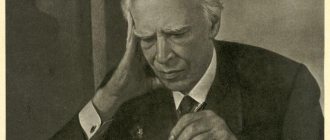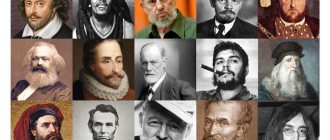This article describes the meaning and origin of the phrase “Knowledge is power.”
It is unlikely that any of the people think about what this or that phrase they say means. For example, many teachers, writers or authors of works often say “Knowledge is power.” What is the origin of this phrase? What does it mean?
Read another article on our website on the topic: “12 words and phrases that will beautifully fill pauses in conversation . You will find interesting options that will help make the dialogue original.
In this article you will find an explanation of where the phrase “Knowledge is power” . You will learn about meaning and how different writers use it in literature. Read on.
Who owns the phrase “Knowledge is power”: origin
The phrase “Knowledge is power”
It is believed that this phrase has more than one author. Some sources claim that it was said by King Solomon , some that Imam Ali . But neither the poet Ferdowsi nor Thomas Hobbes , in fact, are the first to utter this phrase from their lips. Who does this phrase belong to, what is its origin?
- The phrase “Knowledge is power” belongs to Francis Bacon , an English philosopher.
- By the way, this man, while still a 13-year-old teenager, drew up a plan for his most ingenious treatise called the “new organon”.
- This is where it all began - Bacon began to slowly but surely establish his power in the scientific field.
The phrase “Knowledge is power” , in itself, is a masterpiece. However, like everything that is laconic. On the one hand, the superiority of the literate over the illiterate, the smart over the stupid, and the educated over the ignorant is understandable. Moreover, the more useful information in a person’s head, the more options there are to apply it for its intended purpose and be realized in life. Also, education is the basis of great discoveries. And, consequently, the progress of humanity.
By the way, Bacon argued that people themselves are the subject of knowledge.
The scientist contributed to the development of social relations, developed the so-called “logic of modern times,” and also made many more amazing discoveries.
Who said?
So, the author of the saying “Knowledge is power” is Francis Bacon. The name of this man is known all over the world. Francis Bacon is a famous English thinker, philosopher, and politician. He was born in 1561 in London. Graduated from Cambridge University. When he was only 23 years old, he was elected to the House of Commons of the English Parliament. Under James I, he became Keeper of the Royal Seal (a position also held by his father).
In 1605, the first part of Francis Bacon's treatise, The Great Restoration of the Sciences, was published. The main theme of the philosopher’s work was the idea of the limitlessness of human development progress.
Francis Bacon is considered the father of empiricism, a philosophical movement that recognizes sensory experience as the main source of knowledge. He defended positions radically opposed to Aristotle and the medieval scholastics.
The main tenets of Francis Bacon's philosophy can be reduced to the following theses:
- God did not prohibit human knowledge of things.
- The correct method is the key to successful research.
- Scientific knowledge is based on induction (i.e., when generalizing, it is necessary to adhere to rules known to everyone) and experiment (a method of studying a certain subject under controlled conditions).
- There are 4 human errors that hinder cognition. These are the so-called ghosts: “genus” (come from the very essence of a person), “cave” (individual characteristics of the perception of the world), “horses” (arise as a result of communication), “theater” (transmitted from one person to another).
- Francis Bacon not only looked for provisions that would confirm a thesis, but also for facts that refuted it.
So, we looked at the origin of the phraseological unit “Knowledge is power” (who said it). Now let's try to find out the original meaning of the famous phrase.
“Knowledge is power”: the meaning of the phrase
The meaning of this popular expression is quite simple. Anyone who has knowledge is truly capable of subjugating this world. An erudite person is able to go “ahead of the rest.” His rationalizing thought never tires or sleeps. An educated person is always in search of questions and answers, he is always on the path to innovation.
In a simpler sense, “the more you know, the better . Naturally, we are talking about the knowledge that can benefit an individual and society, and not about various kinds of “ballast” that can accumulate in the human brain and consciousness. The meaning of the phrase is described below:
- Knowledge truly gives power.
- Drawing them from the surrounding world, educational sources, and personal experience, a person becomes wiser, he masters new types of activities, and expands his horizons.
- Moreover, in the process of learning, a person’s inner world is also formed, his intelligence increases, and his horizons broaden.
- An educated person can be distinguished from an ignorant person immediately - by his manner of speech and wording, and by his behavior, and by the way he tells his story.
- There are quite a lot of events, situations, phenomena and processes in human life in which an erudite person can apply his knowledge.
In other words, for those who are educated, all roads in life are open. And the smarter a person becomes, the more powerful he is. However, in some cases, Bacon’s is transformed into the version “Knowledge is power . This expression cannot be called a synonym. However, this is a kind of consonance. Indeed, in many cases the concepts of “power” and “power” are closely related. One is impossible without the other.
Essay on a proverb
Throughout our lives, we learn something every minute, we get to know this world in all its colors. The process is endlessly fascinating; it tirelessly immerses us in the cycle of invaluable and useful knowledge.
Where, if not at school, do we begin to fill our backpack with erudition, intelligence and curiosity? Within walls saturated with knowledge, we are actively accumulating smart arguments, valuable skills and experience of our teachers. They are wise bearers of knowledge, always ready to happily help us in our difficulties. We quite often ask questions to textbooks; with due persistence and perseverance, we receive immediate answers, which undoubtedly pleases us. Educational books have incorporated into their content a lot of necessary knowledge that we use in different industries and in various fields of activity.
What is the power of knowledge? They block the development of degradation, motivate us to reach the top, help maintain balance on competitive rafts, lead us onto a promising path, and influence the level of income. We rush up the career ladder with great zeal and restless energy, because we feel the potential in ourselves. The power of knowledge does not lie in overtaking everyone, setting them up, going over their heads for the sake of a hotly desired position. Their strength lies in helping an employee cope with despondency due to the difficulty of solving a task that management has assigned to him. Knowledge without kindness and responsiveness will be useless, the heart will harden, and lose compassion for the problems of others.
It should be noted that we often face a serious obstacle, its name is laziness. She tries in every possible way to annoy us, significantly slowing down our desire to gain as much in-depth knowledge as possible and be in demand. If we give laziness the opportunity to rule over us, then it will win, depriving us of revenge. It is necessary to force yourself to work on your education as intensively as possible. “I won’t need this” is an incorrect conclusion that pre-programs us for a series of failures. By enriching ourselves with knowledge, we become less vulnerable, and self-confidence rapidly increases.
We should not feel sorry for ourselves, otherwise we will begin to weaken, as a result of which our knowledge will lose strength and its percentage will become scarce. Anyone who possesses a large amount of knowledge is undoubtedly rich; new horizons illuminated by the sun open before him. Every person wants to be an excellent specialist, a highly qualified master of his craft, for this it is necessary to constantly improve his knowledge safe.
“Knowledge is power”: application in literature
The phrase “Knowledge is power”
All famous expressions are used by short story writers in literature. With their help, writers can better convey the meaning of the work to the reader. “Knowledge is power” in literature :
- “It’s time for us to understand that scientific knowledge is a force without which the revival of the country is impossible” (Maxim Gorky. “Untimely Thoughts”).
- “More than anywhere else, the situation was applicable: knowledge - strength and power, ignorance - powerlessness and weakness - to the then situation in Russia and the rest of Europe” (P. I. Kovalevsky “Peter the Great and His Genius”).
- “If only they knew, they would go there,” he thought. And knowledge is power , they say. “Sanka somehow dared to go up the mountain with us today,” Irina Vasilievna mysteriously informed her husband a few days after the described adventure, without noticing that the boy was sitting right there in the room” (I. V. Omulevsky “Step by Step”) .
Such examples can be given endlessly. But for an essay or report on the topic, this will be enough.
Interpretations
Although the meaning of the phrase varies from author to author, it most often means that knowledge or education increases potential or ability in life. Owning knowledge and sharing it with others is widely recognized as the basis for improving one's reputation and influence, and thus power. This phrase can also be used as an excuse for reluctance to share information when a person believes that hiding knowledge may provide him with some advantage.
According to another interpretation, knowledge —
this is the only true power, since literally everything is achieved with its help.
“Knowledge is power”: a case study
We also use the expression “Knowledge is power” Sometimes we don’t even notice it, as we say this or that phrase “automatically”. For example, as an example of using this phrase:
- Have you heard? Petka went to the second higher education! - Right! Knowledge is power !
- “Learn, son,” she said, stroking the boy’s head. “It’s true what they say: . ” You will grow up with us and become a great man. Maybe a scientist. Or maybe a great writer or poet. Or maybe a historian. Educated people are needed everywhere. It’s too late for us old people to learn.
- “Maybe knowledge and power ,” Vovochka thought, “But I want to go to the movies more.” Don’t miss the new movie about aliens.” And the boy calmly went to the cinema, while his peers unsuccessfully and painfully tried to understand the rules of declensions and conjugations of the Latin language.
- “You say, knowledge is power ,” Lenka retorted, “and look at my father!” PhD, by the way! What's the end result? He is weak, constantly ill, and cannot travel abroad. He won’t even rest like a human being. He doesn't want everything. It turns out that being educated and cheerful are two different things. But Vaska Krivoy, who has a 4th grade education, is now a local oligarch and authority. It turns out that everything depends on your attitude.
- At first, Timur found it very difficult to adapt to the new language. But the sympathy of his new acquaintance greatly inspired him. Actually, for her sake (for the sake of a native speaker) he decided to learn Japanese. That evening the young man continued to study the textbook. For some reason, the appropriate proverbs “love is evil”, “all ages are submissive to love”, “knowledge is power” . However, the latter was especially important for him now. Because Japanese was difficult for Timur.
Now you understand how the phrase is used in our daily life. You can even use it every day in your dialogues with your interlocutors.
Popular writings
- My grandmother essay (2, 3, 4, 5, 7, 10 grades)
Today I want to talk about my grandmother. She is my best, that is why I decided to tell you about her. - Tamara in Lermontov's poem Demon (Image and Characteristics)
Lermontov M. Yu is a great Russian poet. The poem Demon was of great importance for Lermontov. He wrote it all his life. The poem itself tells a story of love and an earthly woman. - Essay Description of the painting Autumn Rains by Popkov for 8th grade
Popkov’s painting is dedicated to Pushkin and expresses the artist’s perception of the image of the great poet. According to critics, the painting was created based on impressions of Mikhailovsky
Synonyms for the phrase “Knowledge is power”
The phrase “Knowledge is power”
If you are writing an essay or a story, then you may need synonyms for the phrase “Knowledge is power” . It's very easy to choose them. Here are some options:
- Teaching is light, but ignorance is darkness.
- The more languages you know, the more human you are.
- Knowledge is that which most essentially elevates one person above another. D. Addison.
- He who fears knowledge is lost. V. Belinsky.
Now you know the origin of this phrase. This phrase, like many others, was first uttered by a great and famous person. And this is true, because knowledge truly is great power and strength. Therefore, you must always learn and gain experience. This is the only way you can be educated and grow in your own eyes and in the eyes of others. Good luck!
Notes
Comments
- The Latin " potentia
", like the English "
power
", can also be translated as "power", so that in the original the expression has a broader meaning. - The original is a play on words.
- The original is a play on words.
Used literature and sources
- Shahnameh, first poem, couplet 14. ef [1].
- "The Modern Magazine for Persian Weddings, Cuisine, Culture & Community." Persianmirror.com.
- Biblia Sacra Vulgata, Proverbia
- Thomas Hobbes, Opera philosophica…
, Volume III (
Leviathan
[1668]), p. 69 - Thomas Hobbes, The English Works of Thomas Hobbes of Malmesbury...
, Volume 3 (Leviathan), p. 75. - Thomas Hobbes De Corpore
, Part I, Chapter I (
On Philosophy
).
In Thomas Hobbes, The English Works of Thomas Hobbes of Malmesbury…
, Volume I, p.
7. From the Latin edition: Thomas Hobbes, Opera philosophica...
, Volume 1, p. 6 - Thomas Hobbes Quotes - 14 Science Quotes - Dictionary of Science Quotations and Scientist Quotes (undefined)
. todayinsci.com. - ↑ 12
I. S. Dmitriev “INQUISITOR DE RERUM NATURAE”: The origins of F. Bacon’s experimentalist methodology - Francis Bacon, Novum Organum, Part I, Aphorism III. Boston: Taggard & Thompson, 1863, volume VIII, pp. 67–68.
- Vickers, Brian.
Francis Bacon and the Progress of Knowledge (undefined) // Journal of the History of Ideas,. - 1992. - T. 53, No. 3. - P. 495-518. - Ralph Waldo Emerson, Society and Solitude
, 1892, p. 303 - ALEXANDER U. MARTENS.
Geographie als Weltmacht Klett und Perthes werben für ein "Museum der Erde" in Gotha
(undefined)
. Die Welt (24 June 1997). Date accessed: August 29, 2014. - Brogiato, Heinz Peter
"Wissen ist Macht - Geographisches Wissen ist Weltmacht". Die schulgeographischen Zeitschriften im deutschsprachigen Raum (1880-1945) unter besonderer Berücksichtigung des Geographischen Anzeigers. Teil 1: Textband: 656 S., Teil 2: Registerband: 474 S. Trier 1998 (Materialien zur Didaktik der Geographie, Heft 18). Review by Hans Böhm, Erdkunde, 54. Jahrgang, 2000, Heft 4, S. 382-384 (German). - “D. h. die Einrichtung geographischer Lehrstühle entsprach zwischen 1871 und 1874 dem Wunsch von Hochschulen und Fakultäten und erfolgte nicht aufgrund eines “politischen Octroi.”.” Access date: August 29, 2014. Archived December 13, 2014. - The works of J. Orwell. Dystopia “1984” (undefined)
. - Terry Brooks. First King of Shannara
Ballentine. 1996. - Invoker responses (undefined)
.
Bibliography
- Thomas Hobbes, Opera philosophica, quae latine scripsit, omnia in unum corpus nunc primum collecta studio et labore Gulielmi Molesworth
, Bart. (London: Bohn, 1839-45). - Thomas Hobbes, The English Works of Thomas Hobbes of Malmesbury;
Now First Collected and Edited by Sir William Molesworth , Bart. (London: Bohn, 1839-45). 11 vols. - Ralph Waldo Emerson, Society and Solitude.
Twelve Chapters , Boston, The Riverside Press, 1892.
additional literature
- Haas, Ernst B. When Knowledge is Power: Three Models of Change in International Organizations
. University of California, 1990. ISBN 0-520-06646-4. - Higdon, Lee. "Knowledge is power." University Business
, September 2005. Higdon argues that because the US is a knowledge economy, the decline in enrollment economy of non-US students in US universities “has serious long-term implications for the United States.”
, May 8, 2003.
- A report on corporate knowledge management.
- An exploration of what Peterson terms Foucault's “new model of the relations of power and knowledge” that contradicts Bacon.
.










